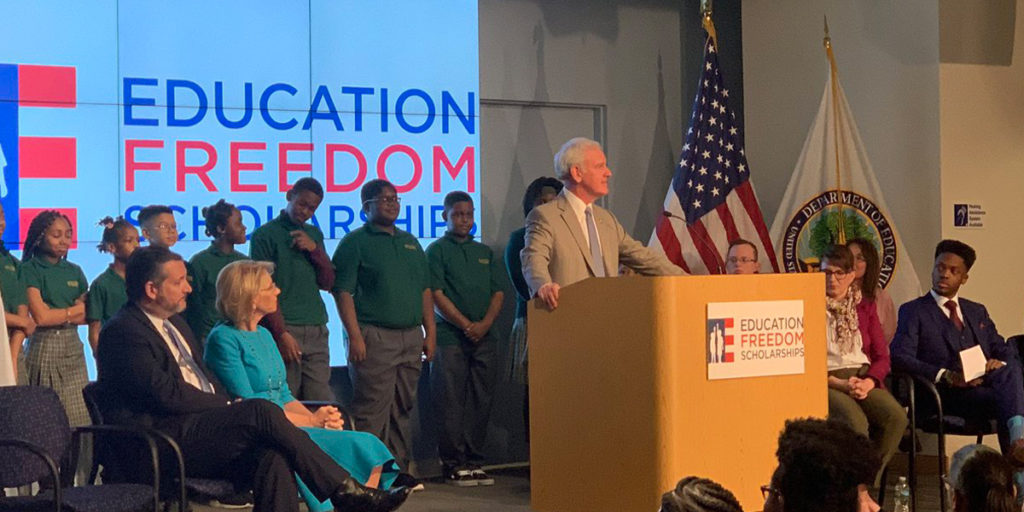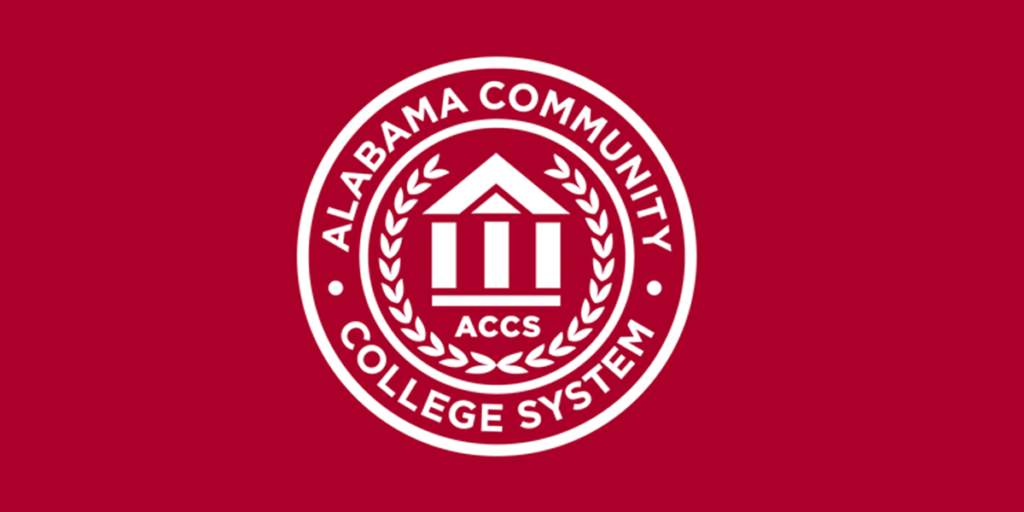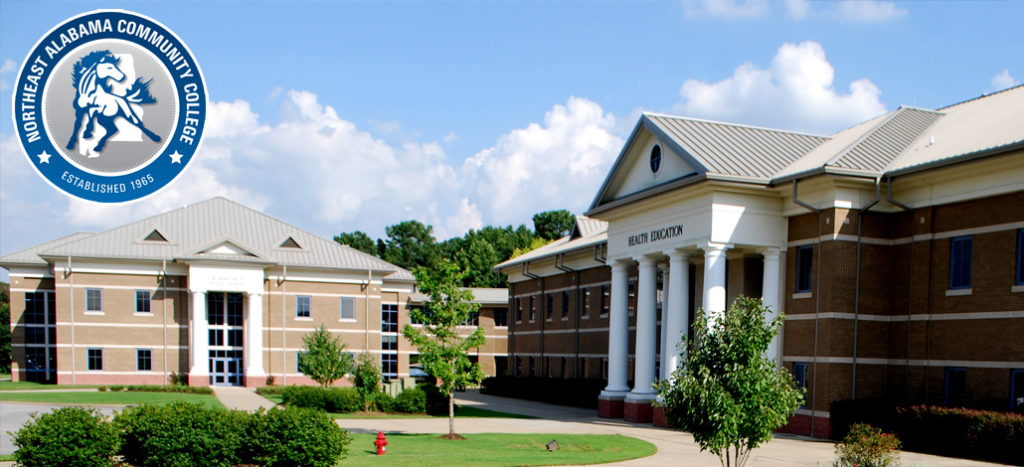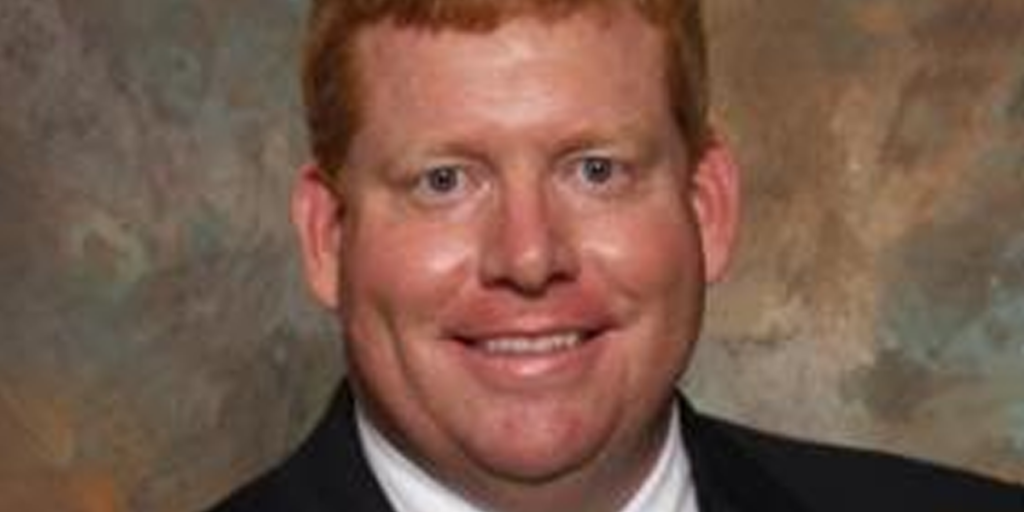Alabama Community College System to temporarily discontinue on-campus instruction

In light of the Coronavirus (COVID-19) outbreak, the Alabama Community College System (ACCS) on Friday announced it will temporarily discontinue on-campus instruction at its 23 institutions across the state for the period of March 17 – April 3. All events scheduled at the state’s community colleges during this time frame are also cancelled. “Our students are our number one priority, and while our decision today to suspend courses is unprecedented it is a necessary precaution to ensure the health and safety of the more than 174,000 students we serve across the state,” said ACCS Chancellor Jimmy Baker. “Our ACCS response team continues to work closely with the Alabama Department of Public Health on this evolving issue and will continue to do everything we can to help stop the potential spread of COVID-19 in the state of Alabama.” Alternative instruction plans are being developed by each ACCS college. These plans will be communicated directly to students by their respective institutions next week.
Bradley Byrne: Empowering Alabama with education opportunities

Education is an amazing tool. It can transform the lives of both the young and old. A quality education empowers the powerless and provides opportunities in otherwise bleak circumstances. It can provide a path out of poverty. I think of Abraham Lincoln, who famously walked miles to borrow books from neighboring towns and farms. Despite being poor, he used what little money he made from farm chores and labor to buy candles. He spent many long nights reading books by dim candlelight to achieve the life he wanted for himself. Lincoln used his hard-earned education from dogeared textbooks and candlelight to become a country lawyer, a member of the U.S. House of Representatives and President of the United States. Today he is remembered and revered as one of the greatest Americans of any generation. Of course, the absence of opportunity for a quality education can be devastating. Those without the means to be educated often have difficulty determining a pathway for a productive life. The temptation to fall into crime to escape can be strong, even overwhelming. I’ve seen these challenges firsthand in Alabama. As a former member of the Alabama Board of Education, I’ve discussed the downside of lack of quality education options with teachers and administrators, parents and students. These are not merely academic issues. They have a real, direct impact on lives. As chancellor of the Alabama Community College System, I saw what can happen when students get stuck in a system that does not prioritize the well-being of its students. Immediately upon taking over, I cracked down to remove corruption and install reform-minded leadership throughout our state. Many of those leaders are still in place, and our two-year and technical colleges are among the best in the nation. I’m proud to have played a role in ensuring the promise of a quality education to so many Alabamians who wanted the opportunity to gain a career and comfortably put food on their table through education. Offering that opportunity has been a passion throughout my career. That’s why I was delighted when earlier this year the Donald Trump Administration asked me to lead their school choice bill in the House. President Trump has prioritized empowering American students through education, and the opportunity to work with him and Education Secretary Betsy DeVos on such a critical issue was exciting. Working closely with Secretary DeVos and Senator Ted Cruz, who is carrying our legislation in the Senate, we developed the Education Freedom Scholarships and Opportunity Act. This bill creates a non-refundable federal tax credit for contributions from individuals and businesses to state-identified nonprofits called Scholarship Granting Organizations (SGOs), a program that has already been used successfully in Alabama. The Education Freedom Scholarship and Opportunity Act also provides for the granting of scholarships to expand students’ access to a variety of educational opportunities, from advanced or remedial courses to private and home schooling to career and technical education opportunities. The bottom line is this bill increases opportunities for families to make informed decisions that work for them and their individual needs. Importantly, our bill allows states to control their SGO programs, not the federal government. As someone who has spent a career in education, I can promise you that the more we allow education decisions to be made at the family and local level, the better off students will be. I’m thankful to President Trump for his trust in allowing me to shepherd his education legislative priority in the House, and I am hopeful that both parties can fully get behind this legislation to empower our students and their families to make the education decisions right for them. Working together, we can give students the educational opportunities they deserve. And they won’t even have to study by candlelight.
Aerospace, automotive summits heading to Birmingham this week

Birmingham is hosting a pair of business summits this week that showcase Alabama’s growing automotive and manufacturing industries, providing participants with high-level networking opportunities and one-on-one meetings. The conferences are the Aerospace Innovative Technology Summit (AITS), held May 7-9, and the Automotive Advanced Technology Summit (AATS), held May 8-9. Both events are taking place at the Birmingham-Jefferson Convention Complex, with 200 companies expected to participate. The Alabama Department of Commerce is among the sponsors of the summits, which feature workshops, presentations and business-to-business meetings. “The automotive and aerospace industries are major drivers of economic growth in Alabama, and these business conventions in Birmingham offer a pathway for companies from across the country and around the world to seek new opportunities and understand how their peers are utilizing and advancing the latest technologies,” said Greg Canfield, secretary of the Alabama Department of Commerce. “Besides companies from Alabama and multiple U.S. states, an international presence representing 11 different countries is here to participate,” he said. “These summits bring a focus on innovation, which is critical to growing and sustaining these manufacturing sectors and placing Alabama in a leading role for the latest technologies.” Focusing on innovation The Aerospace Innovative Technology Summit targets the aerospace, space and defense industries, all with a significant presence in Alabama. With a focus on new technologies being deployed in the sector such as 3D metal printing, digitalization of manufacturing and cyber security, the event aims to connect leading companies and participants in the sharing of ideas in the application and development of these innovations in their businesses. To kick off the aerospace conference, Canfield will provide an overview of the industry sector in the state. Other scheduled speakers include R.G. “Corky” Clinton Jr. of NASA’s Marshall Space Flight Center, Nick Bowman of GKN Aerospace and Jeff Chang of Lockheed Martin. The Automotive Advanced Technology Summit will focus on advanced manufacturing and new technologies at use within an industry growing rapidly in Alabama. Scheduled speakers include Mark Brazeal of Mazda Toyota Manufacturing USA, Tom Shoupe of Honda of America Manufacturing, and Brad Newman of ZF Chassis Systems in Tuscaloosa. Also speaking is Chuck Ernst, a former Honda Alabama executive who now serves as manager of the Alabama Robotics Technology Park, a unique training facility in Decatur. “It is an honor to have Birmingham chosen as the site for both of these conventions,” said Brian Jennings, vice president of economic development for the Birmingham Business Alliance (BBA). “It speaks to Alabama’s prominence in both the aerospace and automotive industries, and we look forward to bringing so many people together to foster continued growth of both industries.” Joining the BBA and the Department of Commerce in supporting the business conferences are the City of Birmingham, Jefferson County, the Birmingham Airport Authority, the Alabama Automobile Manufacturers Association and the Alabama Community College System. Mayor Randall Woodfin said Birmingham is the ideal location for the events. “Now, more than ever, Birmingham is focused on bringing high-quality technology jobs to our city. The summit gives a great chance to identify innovative partners that share our commitment to the next generation of manufacturing in the aerospace and automotive industries,” Woodfin said. This story originally appeared on the Alabama Department of Commerce’s Made in Alabama website.
Personnel note: Annette Funderburk named president of Ingram State Technical College

At the Alabama Community College System (ACCS) board of trustees meeting on Wednesday, Chancellor Jimmy H. Baker announced the selection of Annette Funderburk as president of Ingram State Technical College (ISTC). “Mrs. Funderburk’s impact on Ingram State to date far outweighs her tenure at the institution,” Baker said. “Annette’s vision and passion for correctional education is palpable and her commitment to bettering the lives of those ISTC serves is apparent in the stories of the college’s graduates. ISTC serves a unique purpose within the Alabama Community College System and I’m confident that Annette’s skillset and experience make her the best choice to carry out their important mission.” Funderburk’s experience Funderburk has served as the Interim President at Ingram State since February 2017. Prior to leading ISTC, she served nearly 10 years within the Alabama Community College System where her most recent role was Director of External Affairs. Before working within the two-year college System, Funderburk served in several roles related to local government including a Municipal Consultant, responsible for securing grant funds for infrastructure and development projects, as well as a County Administrator for the Tallapoosa County Commission. She has a Bachelor of Business Administration from the University of Montevallo and a Master’s in Public Administration from Troy University. About ISTC Ingram State Technical College serves a 100 percent incarcerated adult population. An accredited member of the Alabama Community College System, ISTC delivers career technical, GED, and job skills training at six locations across Alabama. “Providing education and training opportunities to Alabama’s incarcerated population is not simply a job, it’s a calling, and I am thrilled to have the opportunity to continue the important work being done at Ingram State,” Funderburk said. “It has been an honor to lead the hard-working and committed faculty and staff at ISTC and I’m proud to work alongside these individuals as we truly make a difference in the lives of those we serve.”
Success Plus initiative aims to add 500,000 high-skilled workers

A new strategic workforce development initiative targets the addition of 500,000 high-skilled employees to Alabama’s workforce by 2025 in response to increasing employer demands for the higher levels of talent needed in modern workplaces. Representatives of the Alabama Workforce Council, a group of high-level business leaders from across the state, presented Gov. Kay Ivey with a report on the Success Plus initiative, which aims to prepare a pipeline of workers with industry-recognized skills obtained through earning certificates, credentials or degrees. “Success Plus research recognizes that Alabama will need to add as many as 500,000 high-skilled employees to the workforce by 2025 to fill industry’s labor needs and compete for new businesses, which would equate to approximately 60 percent of the state’s working-age population,” the report says. Ivey said the initiative is needed because the skills required to compete in 21st century workplaces are shifting. “In order to stay competitive in a global economy, Alabama must prepare our workforce to be ready for the jobs of tomorrow,” she said. “We will be working with business and industry to ensure we have the training necessary to equip Alabamians with the skills needed for these high-tech, high-skill jobs.” Read the Success Plus report. Creating pathways Representatives of the Alabama Workforce Council’s Statewide Educational Attainment Committee presented Ivey with its Success Plus report at an announcement event at the Mobile shipyard of manufacturer Austal, which employs more than 4,000 people. “Today’s economy is changing and evolving rapidly,” said the committee’s chairman, Jeff Lynn of the Alabama Community College System. “More and more skill training, in addition to a high school degree, is essential to citizens looking to build a career, improve their lives and provide opportunities for their families.” In addition to laying out a series of goals and measurements, Success Plus aims to improve access to educational opportunities, create pathways and defined routes that show people how to advance a career, and encourage collaboration among private and public entities. Zeke Smith, chairman of the Alabama Workforce Council, said Success Plus is a natural extension of AlabamaWorks, a unified system that aims to link employers with job seekers and create career paths for young people. “Success Plus will provide my team with another tool to utilize on the recruitment tool so that we can build on the economic development momentum we have going today,” said Greg Canfield, secretary of the Alabama Department of Commerce. “This initiative will underscore our commitment to providing a trained workforce and will give companies yet another reason to invest and create jobs in Alabama.” Republished with the permission of the Alabama Newscenter.
Alabama community college tuition increasing $10 per credit hour

Alabama community colleges will be raising tuition and fees starting this fall. The Alabama Community College System (ACCS) board of trustees on Wednesday unanimously approved a $10-per-credit-hour increase, scheduled to go into effect for the 2018-2019 school year. The increase will bring the average cost of tuition and fees up to $153 per credit hour. “As we move forward, making significant changes and looking to the future of the community college system, there are a number of things we need to address: safety, technology, facilities,” said System Chancellor Jimmy Baker. More than 80,000 students are enrolled within the state’s two-year college system, and the increase is expected to generate approximately $14 million. ACCS officials says half of the increased revenue will be divided among the 25 community and technical colleges across the state, and the other half will be used for general statewide college support. Last year, ACCS increased tuition 1.4 percent.
Steve Flowers: An exciting time for Alabama community Colleges

In March of this year, the Alabama Community College System took a giant leap forward when it brought on a giant in state government and one of Alabama’s preeminent leaders, Jimmy Baker, to be Chancellor. When you have a conversation with Chancellor Baker, he uses words that you do not normally hear in the same sentence, like exciting and community college. He says it is an exciting time. For a myriad of reasons, across the state, community colleges and technical training have been viewed as second best when it comes to higher education options. Sit down with Chancellor Baker and you will leave convinced that Alabama’s community colleges can do more to move the state forward than any other entity in the state. For an institution that in the past had a history of caring a lot about buildings, he is singularly focused on doing what is in the best interest of students. To him, that means an open door policy at every college across the system. Anyone looking to better themselves should be able to walk in the door and find opportunity at their local community college. For some that opportunity looks like core academic coursework to transfer to a four-year or advanced degree at a fraction of the cost. For others that means stackable credentials and skills training to leave the classroom and step directly into a career. It could also mean general literacy and workforce skills or specific job training for a specific industry. The paths are as varied as the student population, which ranges from high school students participating in dual enrollment classes to adult learners who are seeking to advance their careers and everything in between. The Alabama Community College System consists of 24 community and technical colleges residing in each of the state’s urban centers as well as rural locales across the state. Additionally, extensive workforce development training for Alabama business and industry through the Alabama Technology Network also resides within the system. Baker argues that the system’s reach across the state and each college’s connection with their local community makes them the most adaptable, allowing each college to made adjustments based on the needs of their service area. Imagine if this were the case in every community: a new auto manufacturer announces 200 jobs in Anytown, Alabama and the local Anytown Community College is already working to adapt courses and training to ensure the workforce is ready. Anyone familiar with Alabama realizes the dramatic change in the economy over the past half-century. Entire industries have disappeared, replaced with new technology based careers requiring a different knowledge base. The System is committed to being part of the solution. Baker knows that means being honest with students about opportunities that are available and the education, skills, and training needed to secure them. The Alabama Department of Labor estimates that there are more than 14,000 industrial manufacturing and transportation job openings each year. The Alabama Community College System is addressing the issue head-on by partnering with the state to provide two certification programs that upon completion translate into a job in manufacturing or production. Alabama is the first state in the nation to roll out these certifications statewide. The System also made headlines when it was selected as one of only six community colleges systems in the entire country by Apple, Inc. to launch a new app-development curriculum. Students who participate in the courses will learn coding and app development with Apple’s Swift programming language, preparing them for a wide variety of careers in our ever-increasing technology driven economy. While workforce training is a key mission of the ACCS, equal to its focus is to provide Alabama students with the academic coursework they need to be successful. A great number of students come to the community college to take coursework to prepare them to transition to a four-year institution. These students are receiving the same quality of coursework and instruction as they would at other institutions but with smaller class sizes and less cost. Over the past several years, thanks to support from the Alabama Legislature, dual enrollment has continued to expand across the state. Students can take courses and receive both high school and college credit. In many instances, scholarships or grant funds are provided so students are afforded this opportunity at no cost to them. Students who participate will not only graduate high school with college credits under their belt but they will also be more prepared for the rigors of college having already experienced a college classroom. See you next week. ••• Steve Flowers is Alabama’s leading political columnist. His weekly column appears in over 60 Alabama newspapers. He served 16 years in the state legislature. Steve may be reached at www.steveflowers.us.
Personnel note: Michael “Mac” McDaniel named Alabama Community College System Director of Aviation

With more than 300 aerospace companies located in Alabama in addition to the strong military aviation presence, the aviation and aerospace industry continues to expand across the Yellowhammer State. Which is why the Alabama Community College System (ACCS) is doing all that it can to help its graduates secure in-demand jobs within the burgeoning industry. At a press conference on Wednesday, ACCS Chancellor Jimmy Baker announced the creation of a new position within the ACCS — Director of Aviation Programs — and the appointment of Michael “Mac” McDaniel to the new post to help do just that. The new position is responsible for the oversight of the System’s Aviation Technology programs across the state. “Alabama’s aviation industry continues to expand with industry giants like Boeing, Airbus, and GE Aviation locating in our own backyard. The Alabama Community College System is working right alongside to ensure our aviation training program is among the best in the nation,” Baker said. “Selecting Mac to oversee our aviation efforts signifies our serious commitment to meeting the industry’s workforce needs. Mac’s nearly three decades of aviation experience will ensure our students across the state are receiving the most relevant and state-of-the-art skills training when it comes to a career in aviation.” McDaniel will join the ACCS from ExpressJet Airlines in Atlanta where he served as the General Manager of Aircraft Maintenance Training. He began his career more than 25 years ago as an aircraft mechanic and since that time has worked for airlines across the U.S. managing their maintenance training initiatives. A graduate of Colorado Northwestern Community College, McDaniel recognizes the vital role community colleges play in preparing students to succeed in their future careers. An expert in aviation maintenance and training, McDaniel is often featured in the industry’s leading trade publications. “I am passionate about training the next generation of aviation employees and leaders and I am thrilled to have the opportunity to lead this effort in Alabama,” McDaniel said of his appointment. “Alabama’s community colleges have a stellar reputation for providing top-of-the-line aviation related training to their students and I’m eager to use my industry expertise to build upon the program.” The Alabama Community College System’s Aviation Technology programs offer Federal Aviation Administration certified training in airframe maintenance and technology, power plant technology, avionics technology, aviation composite materials and general aviation technology. Courses are offered through three of the state’s community colleges: Coastal Alabama Community College, Enterprise State Community College, and Snead State Community College. McDaniel will start his new role on September 11.
Personnel note: Rachel Adams leaving Ala. Speaker’s office for new gig with ACCS

After more than four and a half years working as the Communications Director in the Alabama House Speaker’s office, Rachel Adams on Monday announced she’s moving on. The University of Missouri grad starts a new gig on Tuesday working with the Alabama Community College System as their Communications and Marketing Administrator. There, she will be responsible for building and coordinating news media relations and serving as the primary contact for all external media outlets for the ACCS.Additionally, she will manage and update content on the ACCS website, social media pages, and other online platforms. Prior to her time in the Speaker’s office she worked as the Communications Director for the Republican National Committee’s Victory office in North Carolina, where among other things she created and implemented traditional and social media campaigns to drive RNC and Romney Campaign message to NC voters. Before that, she was a senior account executive at the Washington, D.C.-based Vox Global, , a bipartisan public affairs and strategic communications firm, where she developed internal event planning structure for Fortune 10 Corporation and coordinated the company’s presence at major stakeholder events. Adams’ replacement in the Speaker’s office has yet to be announced.
Alabama Community College System announces new testing partnership

Alabama Community College System (ACCS) Chancellor Jimmy Baker on Tuesday joined Alabama Peace Officers’ Standards and Training Commission (APOSTC) Executive Secretary Chief R. Alan Benefield to sign a resolution that makes the ACT WorkKeys assessment the official testing requirement for admission into APOSTC academies to become a Law Enforcement Officer or a State Correctional Officer. The WorkKeys assessment is currently offered at all of Alabama’s community colleges for workforce development program testing, and will now be the exclusive testing centers for APOSTC’s Basic Ability Test, or BAT. The assessments help measure workplace skills that can affect job performance. Unlike other assessments, they don’t simply give an indication of reading and writing competency. Instead, they measure a range of hard and soft skills relevant to any occupation, at any level, and across industries. Additionally, successful completion of WorkKeys assessments can lead to earning an National Career Readiness Certificate™ (NCRC®) — a credential that verifies foundational workplace skills. “It is an honor for the Alabama Community College System to partner with APOSTC and the men and women in uniform who do so much to protect us each and every day” said Baker. “This partnership will allow law enforcement agencies across the state to easily schedule assessments at our local community colleges, and will provide them with better qualified officers who have the basic skills they need to succeed.” In 2014, APOSTC adopted the BAT as an additional educational requirement for Law Enforcement and Correctional Officer academy applicants to better determine educational aptitude which had become more difficult due to the increase in different types of high school diplomas. After several years of research into best practices in other states, APOSTC determined that the ACT WorkKeys assessment through Alabama’s community colleges was the easiest and most cost-effective method to establish a minimum educational base line that would demonstrate an applicant’s ability to successfully complete the law enforcement and correctional training academies. “The Alabama Peace Officers’ Standards and Training Commission extends our thanks and gratitude to Chancellor Baker and the many individuals within ACCS that made this agreement possible” added Benefield. “This partnership allows applicants to take his or her BAT at any of the 24 community colleges across Alabama, which are conveniently located to all law enforcement agencies in the state.” The ACT WorkKeys assessment is comprised of three skill areas: Applied Math, Graphic Literacy, and Workplace Documents (understanding memos, notices, policies, and other written text). While WorkKeys testing schedules may vary from college to college, pricing will be standard among all colleges: $45 for all three skill area sections or $15 for each individual section.
Tuition to increase for Alabama Community College System students

Students attending Alabama’s 25 two-year colleges will see tuition rise 1.4 percent in the upcoming academic year. The Alabama Community College System‘s board of trustees approved tuition rates per credit hour to increase $2 to $119 for Alabama residents and $234 for nonresidents. Students at Marion Military Institute and the Alabama Technology Network will not be affected by the tuition increase. Trustee chairman Al Thompson called the rate hike “modest” saying it’s part of an annual adjustment first established by the Alabama Board of Education. More than 83,000 students are enrolled within the state’s two-year college system.
Personnel note: Bill Ashley named president of Shelton State Community College

Long-time Mississippi community college official Bill Ashley will be leaving the Magnolia State and moving to Tuscaloosa, Ala. to assume the top post at Shelton State Community College. The Alabama Community College System board of trustees on Wednesday approved Dr. William J. “Bill” Ashley as the next permanent president of Shelton State. “Dr. Ashley’s community college system experience is impressive in terms of years and breadth,” Jimmy H. Baker, chancellor of the Alabama Community College System said. “He will be a tremendous asset at Shelton State, and we look forward to working with him as he takes the campus to the next level.” Ashley has worked almost two decades in Mississippi’s community college system, serving most recently as vice president for student affairs at Southwest Mississippi Community College in Summit, Miss. His prior roles range from student instruction to athletics to academic leadership. A Mississippi native, he earned a Ph.D. in community college leadership from Mississippi State University. He also has an MBA from Delta State University and other educational credentials in finance and accounting. “I am deeply committed to the mission of community colleges, which is to provide accessible education and opportunities to people throughout their lifetimes,” Ashley said. “I’m especially eager to be a part of the exciting things happening today in Alabama’s community college system.”


